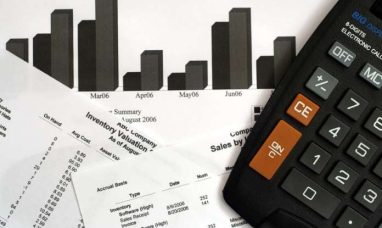The upcoming US election is just one of several significant risks currently facing the financial markets. Investors are closely monitoring the political landscape as it could have substantial implications for economic policy and market stability. Apart from the election, other factors such as inflation, interest rates, and global economic conditions are also influencing market sentiment.
The political uncertainty surrounding the election is causing increased volatility in the markets. Historically, elections have led to short-term market fluctuations, but this year’s election comes at a particularly sensitive time. The Federal Reserve’s stance on interest rates and the ongoing concerns about inflation are already keeping investors on edge. Adding the election into the mix only amplifies these concerns.
Inflation remains a critical factor as it directly impacts consumer spending and corporate profitability. The Federal Reserve has indicated that it may continue to raise interest rates to combat rising prices. Higher interest rates can lead to higher borrowing costs for businesses and consumers, potentially slowing economic growth. Investors are particularly worried about how the outcome of the election might influence the Fed’s future policies.
Global economic conditions are another area of concern. Issues such as supply chain disruptions, geopolitical tensions, and trade policies are creating an unpredictable environment. These factors, combined with the domestic political uncertainty, make it challenging for investors to make informed decisions.
In the corporate world, companies are bracing for the potential impacts of the election. For instance, tech giants and healthcare companies are particularly sensitive to changes in regulatory policies that could arise from the election. The financial sector is also on high alert, given that any changes in fiscal policy could affect banking regulations and tax policies.
Moreover, the stock market has been witnessing a series of ups and downs, reflecting the broader economic uncertainties. For example, Microsoft (NASDAQ:MSFT) and other tech stocks have experienced volatility due to concerns over tighter regulations and potential changes in trade policies. Similarly, the healthcare sector is facing uncertainties related to drug pricing and healthcare reforms, which could be influenced by the election outcome.
Investors are advised to stay informed and consider diversifying their portfolios to mitigate risks associated with the election. Diversification can help spread risk and provide some level of protection against market volatility. Additionally, keeping an eye on economic indicators and staying updated on Federal Reserve announcements can provide valuable insights into market trends.
In conclusion, while the US election is a significant risk factor, it is not the only one affecting the financial markets. Inflation, interest rates, and global economic conditions are equally important. Investors should take a holistic approach to manage their investments, considering all these factors to make informed decisions.
Footnotes:
- The political uncertainty surrounding the election is causing increased volatility in the markets. Source.
- Inflation remains a critical factor as it directly impacts consumer spending and corporate profitability. Source.
- Global economic conditions are another area of concern. Source.
Featured Image: DepositPhoto @ Haydmitriy















